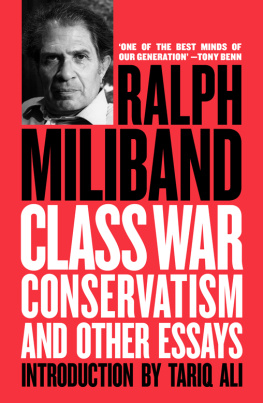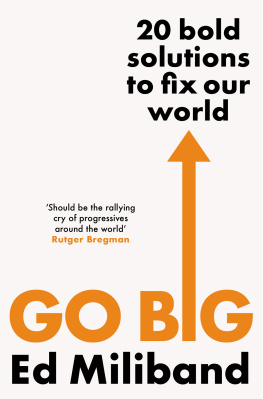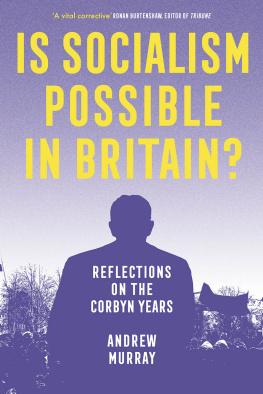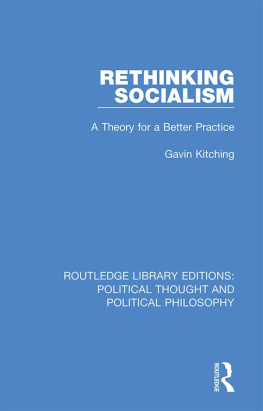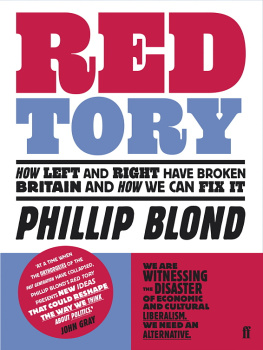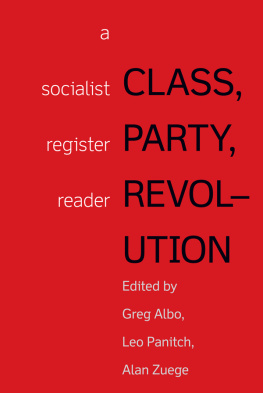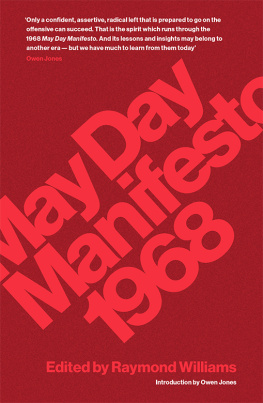Introduction:
A PoliticalBiographical Sketch
Ralph Miliband was a socialist intellectual of great integrity. He belonged to a generation of socialists formed by the Russian Revolution and the Second World War, a generation that dominated leftwing politics for almost a century. His father, a leather craftsman in Warsaw, was a member of the Jewish Bund, an organization of militant socialist workers that insisted on preserving their ethnic autonomy.
Poland, after the First World War, was beset by chaos, disorder and a foolish, ill-thought incursion by the Red Army, which helped to produce the ultra-nationalist military dictatorship of General Pisudski. There were large-scale migrations. One of Ralphs uncles had gone eastwards and joined the Red Army, then under Trotskys command. His parents had left Warsaw separately in 1922. They met in Brussels where they had both settled and were married a year later. Ralph was born in 1924.
That same year, another Pole who would later become a close friend was already in his romantic teens writing poetry in Cracow: Isaac Deutscher. The sixteen-year-old Deutschers heightened emotions were on public display as the following poem, Fall, reveals:
Fall like a snowflake on a shattered temple,
Flow with a wine-soaked pulse through softened veins,
While the mist of Cracows morning dissipates on the roof!
Who made me follow the noble shadow of sadness
And drown you in the eye of the gloomy day?
Let me go!
I wont go
With a red flame your soul will revel in the towers
Among the fields and on the streets,
On the squares, by the toll-gates.
You will nestle me,
Nestle me like the skys bright silk,
And an unknown, blue, faithful ship will take us to a place where black trees will grow from the flesh of the silver earth!
And there will be joy
There would be little joy in the years that lay ahead for either Deutscher or Miliband. Hitlers victory in Germany in 1932, followed a few years later by the Spanish Civil War, polarized politics throughout the Continent. It was not possible for an intellectually alert fifteen-year-old to remain unaffected. Ralph joined the lively Jewish-socialist youth organisation Hashomeir Hatzair (Young Guard), whose members later played a heroic role in the Resistance.
It was here that the young Miliband learnt of capitalism as a system based on exploitation where the rich lived off the harm they inflicted on others. One of his close friends, Maurice Tran, who was later hanged at Auschwitz, gave him a copy of The Communist Manifesto. Even though he was not yet fully aware of it, he had become enmeshed in the business of socialist politics.
In 1940, as the German armies began to roll into Belgium, the Milibands, like thousands of others, prepared to flee to France. This proved impossible because of German bombardment. Just as well; Vichy France, with the complicity of large swathes of French citizens, would later send many Jews to the camps. So Ralph and his father walked to Ostend and boarded the last boat to Dover, which was already packed with fleeing diplomats and officials. The family was divided. His mother and younger sister, Nan, remained behind and only survived the war with the help of the Resistance.
Ralph and his father arrived in London in May 1940. Both worked, for a time, as furniture removers, helping to clear bombed houses and apartments. It was Ralph who determined the division of labour, ensuring that his main task was to carry the books. Often he would settle on the front steps of a house, immersed in a volume.
His passion for the written word led him to the works of Harold J. Laski. He had read in one of these that Laski taught at the London School of Economics (then exiled to Cambridge) and was determined to study there. His English was getting better by the day and, after his matriculation, he finally found his way to the LSE. Laski became a mentor, never to be forgotten, and in a review-essay for the 200th issue of New Left Review, Ralph Miliband acknowledged his debt:
I came to know Harold Laski as a student at the LSE between 1941 and 1943; and I was fairly close to him after I came back to the LSE in 1946. I was quite dazzled, as a 17-year-old student, by his scholarship, his wit, his extraordinary generosity to students, and his familiarity with the great and the mighty. I had a deep affection for him, which the passage of years since his death in 1950 at the age of 56 has not dimmed.
The three missing years to which he refers were spent in service as a naval rating in the Belgian section of the Royal Navy. Aware of the fact that many of his Belgian comrades were engaged in the war against Fascism, and traumatized by the absence of his mother and sister, he had volunteered, using Laskis influence to override the bureaucracy. He served on a number of destroyers and warships, helping to intercept German radio messages. He rose to the rank of chief petty officer and was greatly amused on one occasion when his new commanding officer informed him how he, Ralph, had been rated by a viscount who had commanded the ship on which he had previously served: Miliband is stupid, but always remains cheerful.
After the war he graduated from the LSE with a PhD and embarked on a long teaching career. The subject of his 900-page doctoral dissertation was Popular Thought in the French Revolution: 17891794. It is a gripping account of the radical currents in the French Revolution, but above all, the common people. What interested Miliband was how they responded and participated in an event that transformed world politics, inspiring the Haitian Revolution, Simn Bolvar and Tipu Sultan (then engaged in an epic struggle against the British Empire in South India).
The thesis is written in clear, crisp and concise language, without a trace of the obfuscatory language that litters so many contemporary productions. He explains why the revolution devoured its own and at the time of writing he was, no doubt, thinking of how the same phenomenon had destroyed hope in the Russian Revolution a century or so later. The Jacobin hostility to the Enrags fascinates Miliband:

